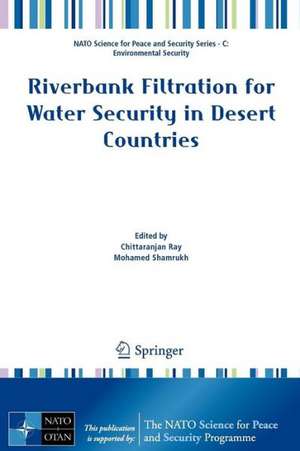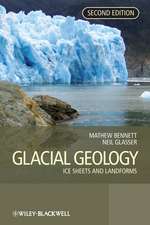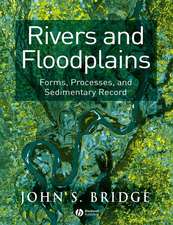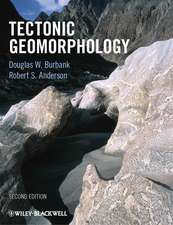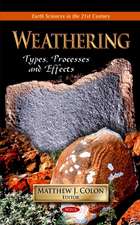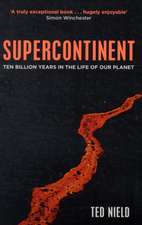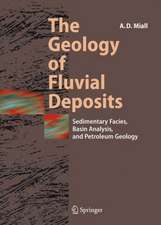Riverbank Filtration for Water Security in Desert Countries: NATO Science for Peace and Security Series C: Environmental Security
Editat de Chittaranjan Ray, Mohamed Shamrukhen Limba Engleză Paperback – 17 noi 2010
| Toate formatele și edițiile | Preț | Express |
|---|---|---|
| Paperback (1) | 1218.06 lei 6-8 săpt. | |
| SPRINGER NETHERLANDS – 17 noi 2010 | 1218.06 lei 6-8 săpt. | |
| Hardback (1) | 1222.31 lei 6-8 săpt. | |
| SPRINGER NETHERLANDS – 17 noi 2010 | 1222.31 lei 6-8 săpt. |
Din seria NATO Science for Peace and Security Series C: Environmental Security
- 18%
 Preț: 1106.00 lei
Preț: 1106.00 lei - 15%
 Preț: 659.70 lei
Preț: 659.70 lei - 18%
 Preț: 999.60 lei
Preț: 999.60 lei - 18%
 Preț: 1221.07 lei
Preț: 1221.07 lei - 18%
 Preț: 1220.75 lei
Preț: 1220.75 lei - 18%
 Preț: 940.39 lei
Preț: 940.39 lei - 18%
 Preț: 1216.78 lei
Preț: 1216.78 lei - 18%
 Preț: 1232.71 lei
Preț: 1232.71 lei - 18%
 Preț: 1818.02 lei
Preț: 1818.02 lei - 18%
 Preț: 1833.95 lei
Preț: 1833.95 lei - 18%
 Preț: 1231.47 lei
Preț: 1231.47 lei - 18%
 Preț: 942.44 lei
Preț: 942.44 lei - 18%
 Preț: 1218.06 lei
Preț: 1218.06 lei - 18%
 Preț: 1383.00 lei
Preț: 1383.00 lei - 15%
 Preț: 664.29 lei
Preț: 664.29 lei - 18%
 Preț: 1220.88 lei
Preț: 1220.88 lei - 24%
 Preț: 1040.03 lei
Preț: 1040.03 lei - 18%
 Preț: 1222.80 lei
Preț: 1222.80 lei - 18%
 Preț: 1220.75 lei
Preț: 1220.75 lei - 18%
 Preț: 1224.85 lei
Preț: 1224.85 lei - 18%
 Preț: 1224.85 lei
Preț: 1224.85 lei - 18%
 Preț: 1224.68 lei
Preț: 1224.68 lei - 18%
 Preț: 963.15 lei
Preț: 963.15 lei - 18%
 Preț: 1229.10 lei
Preț: 1229.10 lei - 18%
 Preț: 1222.49 lei
Preț: 1222.49 lei - 18%
 Preț: 1223.74 lei
Preț: 1223.74 lei - 18%
 Preț: 1213.65 lei
Preț: 1213.65 lei - 18%
 Preț: 956.33 lei
Preț: 956.33 lei - 18%
 Preț: 1235.43 lei
Preț: 1235.43 lei - 18%
 Preț: 940.39 lei
Preț: 940.39 lei - 18%
 Preț: 1210.63 lei
Preț: 1210.63 lei - 18%
 Preț: 1219.63 lei
Preț: 1219.63 lei - 18%
 Preț: 1225.48 lei
Preț: 1225.48 lei - 18%
 Preț: 1228.75 lei
Preț: 1228.75 lei - 18%
 Preț: 1228.62 lei
Preț: 1228.62 lei - 18%
 Preț: 1222.94 lei
Preț: 1222.94 lei - 18%
 Preț: 962.98 lei
Preț: 962.98 lei - 18%
 Preț: 1218.06 lei
Preț: 1218.06 lei - 15%
 Preț: 643.99 lei
Preț: 643.99 lei - 18%
 Preț: 1220.12 lei
Preț: 1220.12 lei - 18%
 Preț: 1233.52 lei
Preț: 1233.52 lei - 18%
 Preț: 946.24 lei
Preț: 946.24 lei - 18%
 Preț: 1218.21 lei
Preț: 1218.21 lei - 18%
 Preț: 953.65 lei
Preț: 953.65 lei
Preț: 1218.06 lei
Preț vechi: 1485.45 lei
-18% Nou
Puncte Express: 1827
Preț estimativ în valută:
233.15€ • 253.34$ • 195.97£
233.15€ • 253.34$ • 195.97£
Carte tipărită la comandă
Livrare economică 21 aprilie-05 mai
Preluare comenzi: 021 569.72.76
Specificații
ISBN-13: 9789400700390
ISBN-10: 9400700393
Pagini: 300
Ilustrații: XVI, 304 p.
Dimensiuni: 155 x 235 x 23 mm
Greutate: 0.45 kg
Ediția:2011
Editura: SPRINGER NETHERLANDS
Colecția Springer
Seria NATO Science for Peace and Security Series C: Environmental Security
Locul publicării:Dordrecht, Netherlands
ISBN-10: 9400700393
Pagini: 300
Ilustrații: XVI, 304 p.
Dimensiuni: 155 x 235 x 23 mm
Greutate: 0.45 kg
Ediția:2011
Editura: SPRINGER NETHERLANDS
Colecția Springer
Seria NATO Science for Peace and Security Series C: Environmental Security
Locul publicării:Dordrecht, Netherlands
Public țintă
GraduateCuprins
Preface.´- Riverbank Filtration Concepts and Applicability to Desert Environments.- Water Pollution and Riverbank Filtration for Water Supply Along River Nile, Egypt.- A Combined RBF and ASR System for Providing Drinking Water in Water Scarce Areas.-Behavior of Dissolved Organic Carbon During Bank Filtration Under Extreme Climate Conditions.- Risk Assessment for Chemical Spills in the River Rhine.- Fluorescent Microspheres as Suprogates in Evaluating the Efficacy of Riverbank Filtration for Removing Cryptosporidium parvam Oocysts and Other Pathogens.- Hydrogeochemical Processes During Riverbank Filtration and Artificial Recharge of Polluted Surface Waters: Zonation, Identification, and Quantification.- Potential of Riverbank Filtration to Remove Explosive Chemicals.- Framework for Assessment of Organic Micropollutant Removals During Management Aquifer Recharge and Recovery.- Dissolved Organic Carbon as an Indicator Parameter for Groundwater Flow and Transport.- Planning, Design and Operations of Collector 6, Sonoma County Water Agency.- Evaluation of Bank Filtration for Drinking Water Supply in Patna by the Ganga River, India.- Minimizing Security Risks Beyond the Fence-Line: Design Features of a Tunnel-Connected Riverbank Filtration System.- Removal of Iron and Manganese within the Aquifer Using Enhanced Riverbank Filtration Technique under Arid Conditions.- Riverbank Filtration as an Alternative Treatment Technology: AbuTieg Case Study, Egypt.- Quality of River Bank Filtrated Water on the Base of Poznań City (Poland) Waterworks Experiences.- Riverbank Filtration as an Alternative to Surface Water Abstraction for Safe Drinking Water Supply to the City of Khabarovsk, Russia.- Index.
Textul de pe ultima copertă
Riverbank filtration is a low cost, yet efficient water treatment technology. It has most potential to provide safe drinking water to large cities located along rivers or lakes. In particular, it is ideal for large population centres in developing countries, where the cost of building extensive treatment facilities is prohibitive. Water filtration can be successfully implemented using naturally occurring sand and gravel along the river/lake banks. The cost of water produced by this means is much lower than that of water treated in conventional treatment plants. Authored by a multi-disciplinary team of experts, this volume addresses the scientific basis of the filtration process, and also numerous topics of importance for the planning, technical realization, and security of such plants. Their application for the removal of relevant chemical pollutants and a variety of pathogens is analysed in detail.
Caracteristici
Riverbank filtration can help water companies comply with stringent drinking water regulations without going for significant improvements in existing water treatment plants It can delay planned upgrading or expansion of treatment plants (cost savings) Will form less disinfection by-products after chlorination of the water Effective against the removal of protozoa in drinking water Includes supplementary material: sn.pub/extras
